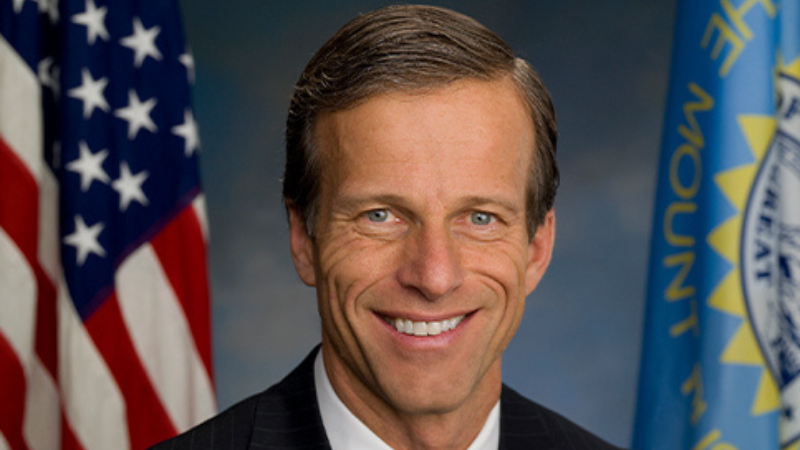John Thune | Official U.S. Senate headshot
John Thune | Official U.S. Senate headshot
“As a member of the Senate Agriculture Committee – and a senator from a state where agriculture is not just a way of life but the way of life – the farm bill is always one of my top priorities.”
July 13, 2023
Click here to watch the video.
WASHINGTON — U.S. Sen. John Thune (R-S.D.), a longtime member of the Senate Committee on Agriculture, Nutrition, and Forestry, today spoke on the Senate floor about his goals and priorities for the 2023 farm bill. Thune noted that it is critical for both houses of Congress to prioritize passing the farm bill.
Thune’s remarks below (as prepared for delivery):
“Mr. President, the farm bills we take up every few years are essential pieces of legislation.
“They help provide the tools and resources farmers and ranchers need to carry out their task of feeding our nation.
“And with parts of the 2018 farm bill expiring in the next few months, passing our next farm bill needs to be one of Congress’ top priorities during the remainder of this year.
“The Senate Agriculture Committee has been working on this year’s legislation, but there is more work to be done.
“And we need to make sure that we don’t delay in getting this bill over the finish line.
“Farmers and ranchers already face a lot of uncertainty in their profession – few jobs are as subject to market fluctuations or the whims of the weather – and the least we can do here in Congress is make sure that they know that critical programs won’t be expiring and that they will continue to have access to essential resources that help make farming and ranching possible.
“Mr. President, as a member of the Senate Agriculture Committee – and a senator from a state where agriculture is not just a way of life but the way of life – the farm bill is always one of my top priorities.
“I’ve had the privilege of helping to craft four farm bills during my time in Congress.
“And for me the process always begins and ends with farmers and ranchers.
“I’ve been gearing up for the 2023 farm bill pretty much since work finished on the last one, and last year I kicked off a series of roundtables with agriculture producers to hear firsthand from farmers and ranchers what they need from this year’s bill.
“These formal discussions, along with the many informal conversations I regularly have with farmers and ranchers, have provided me with invaluable feedback.
“And I’m working on a number of measures for this year’s farm bill that reflect the input I’ve received from South Dakota producers.
“Mr. President, one thing that farmers have made clear is the critical role of the farm safety net.
“Crop insurance is the cornerstone of the farm safety net, and it needs to be maintained, and, to the extent possible, strengthened in the next farm bill.
“Currently, the Agriculture Risk Coverage and Price Loss Coverage programs, which help offset losses when prices for agricultural products drop, are not always proving sufficient.
“And one of my top priorities for this year’s bill is improving commodity and livestock programs to ensure that farmers and ranchers have sufficient backup.
“I’m also working to make the Conservation Reserve Program a more effective option for producers and landowners.
“Currently the program doesn’t sufficiently support grazing infrastructure, which limits the benefit of participating for some producers.
“And the annual payment limit for this program hasn’t changed since it was first created in 1985.
“To address these issues, I introduced the Conservation Reserve Program Improvement Act, which would provide more flexibility for producers and increase the payment cap to account for increased land values.
“And I will work to ensure that the CRP Improvement Act is included in the final farm bill.
“Mr. President, in addition to farmed crops, livestock production is an integral part of South Dakota’s agriculture economy.
“And one of my priorities for this year’s farm bill is addressing some of the challenges facing South Dakota livestock producers in getting their products to Americans’ tables.
“The last few years have revealed some vulnerabilities in our food supply chain that had an outsize impact on livestock producers.
“Early pandemic closures of some meat processing plants led to bottlenecks in processing livestock and delays for a lot of ranchers.
“And this led to supply shortages and empty cases at the grocery store – shortages caused by lack of processing capacity, not a lack of livestock.
“It’s become clear that livestock producers need more processing options, and one way we can reduce dependence on the big packers is by expanding smaller meatpackers’ capacity.
“I’ve introduced the Strengthening Local Processing Act to help smaller processors invest in the infrastructure they need to expand.
“My bill would also allow more state-inspected meat products to be sold across state lines, which would open up new markets for small meat processors and the farmers and ranchers who supply them.
“I’ve also introduced legislation – the bipartisan American Beef Labeling Act – to require the U.S. Trade Representative to develop a World Trade Organization-compliant means of reinstating mandatory country of origin labeling for beef.
“Under our current system, beef that is neither born nor raised in the United States but is simply finished here can be labeled ‘Product of the USA’ – even if the only American thing about the beef is the plastic it’s wrapped in – if that.
“This is unfair to American cattle producers and misleading to consumers, and I’m pleased USDA is working on a proposed rule to close the ‘Product of the USA’ labeling loophole.
“And I will continue to work to get my American Beef Labeling Act included in the 2023 farm bill so that consumers can be confident that any beef labeled ‘Product of the USA’ really came from American cattle producers.
“Mr. President, new practices and technologies can be game-changers for farmers.
“But without reliable data it can be unclear whether these practices and technologies will have a positive impact.
“That’s why earlier this year I introduced the Agriculture Innovation Act, which would make it easier for producers and trusted researchers to use USDA data to assess the impact of various production practices, so that producers can gauge whether these practices are right for their farm or ranch operation.
“And of course while the macro-level data USDA collects can provide valuable information, farmers are already beginning to look to the next frontier – collecting real-time, micro-level data from their own fields.
“And I’ve introduced the Promoting Precision Agriculture Act to help advance precision agriculture technology and allow more farmers to take advantage of this data revolution.
“And because without a reliable internet connection, precision agriculture technology doesn’t get you very far, I’m also working to ensure that my bill to streamline USDA’s broadband authorities, and ensure funding goes to areas where at least 90 percent of households lack broadband access, is included in this year’s farm bill.
“Mr. President, producing the food that fills Americans’ dinner tables is no easy task.
“And we owe the men and women who do this important work the certainty that the programs they depend on will be there for them.
“I hope that leaders in both houses of Congress will put passing the 2023 farm bill at the top of our to-do list.
“And I will do everything I can to advance this important legislation.
“And today and every day, I will continue to make farmers and ranchers my priority.
“Mr. President, I yield the floor.”
Original source can be found here.




 Alerts Sign-up
Alerts Sign-up